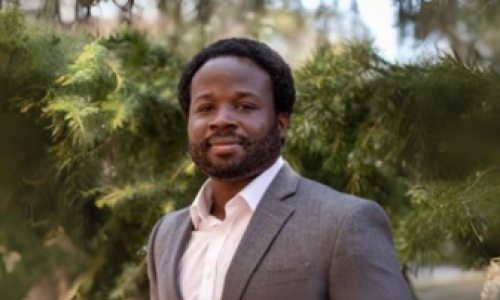Celebrating Black in Physical Sciences Colloquium Series
"Celebrating Black in Physical Sciences Colloquium Series" launched in spring 2022 and is organized by the UCI School of Physical Sciences Office of Access, Outreach and Inclusion where we invite physical scientists and mathematicians to share their research with the community while also allowing us the opportunity to celebrate their accomplishments. The colloquium series will feature speakers in each of the four department areas. If you have any questions or would like to recommend a speaker please reach out to aoips@uci.edu.
Read about past speakers below!

Precision Measurement of the Quantum Vacuum with Petawatt Lasers
Wendell T. Hill, III holds the rank of Professor at the University of Maryland, College Park, (UMD) with appointments in the Institute for Physical Science and Technology and the Department of Physics, and is also a fellow of the Joint Quantum Institute (JQI).

Beryllium, Boron, and Bismuth: From Fundamental Redox Chemistry to Luminescent and Thermochromic Materials
Professor Gilliard is a native of Hartsville, South Carolina. He obtained his bachelor’s degree in chemistry at Clemson University where he was an undergraduate researcher in the laboratory of Professor Rhett C. Smith. He earned his doctorate in chemistry at The University of Georgia with Professor Gregory H. Robinson.

Utilizing Math Models to Understand Infectious Disease
Omayra Y. Ortega is an assistant professor of mathematics & statistics at Sonoma State University in Sonoma County, California. She earned her Ph.D. (2008) and an M.S. (2005) in applied mathematics and computational sciences from the University of Iowa, where she also was awarded her Masters of Public Health.
